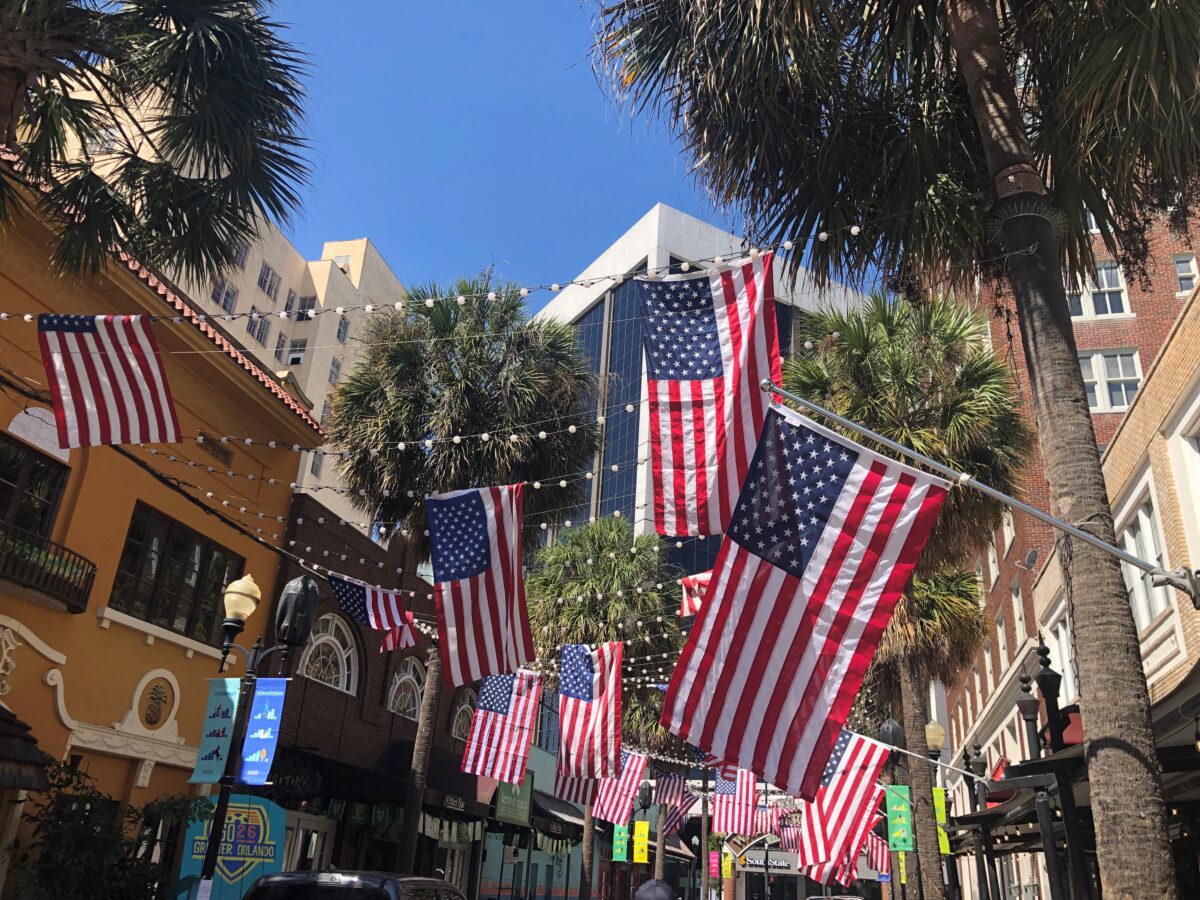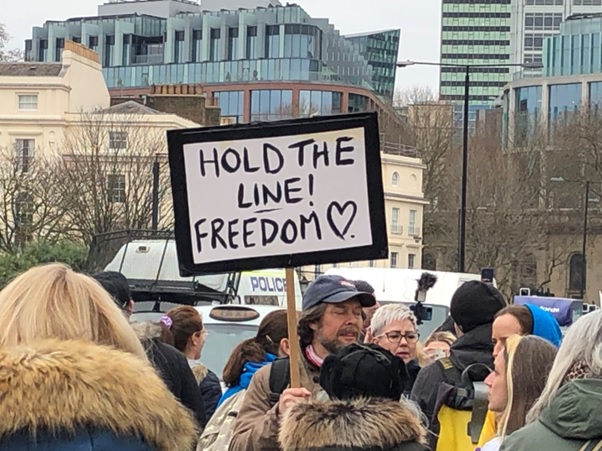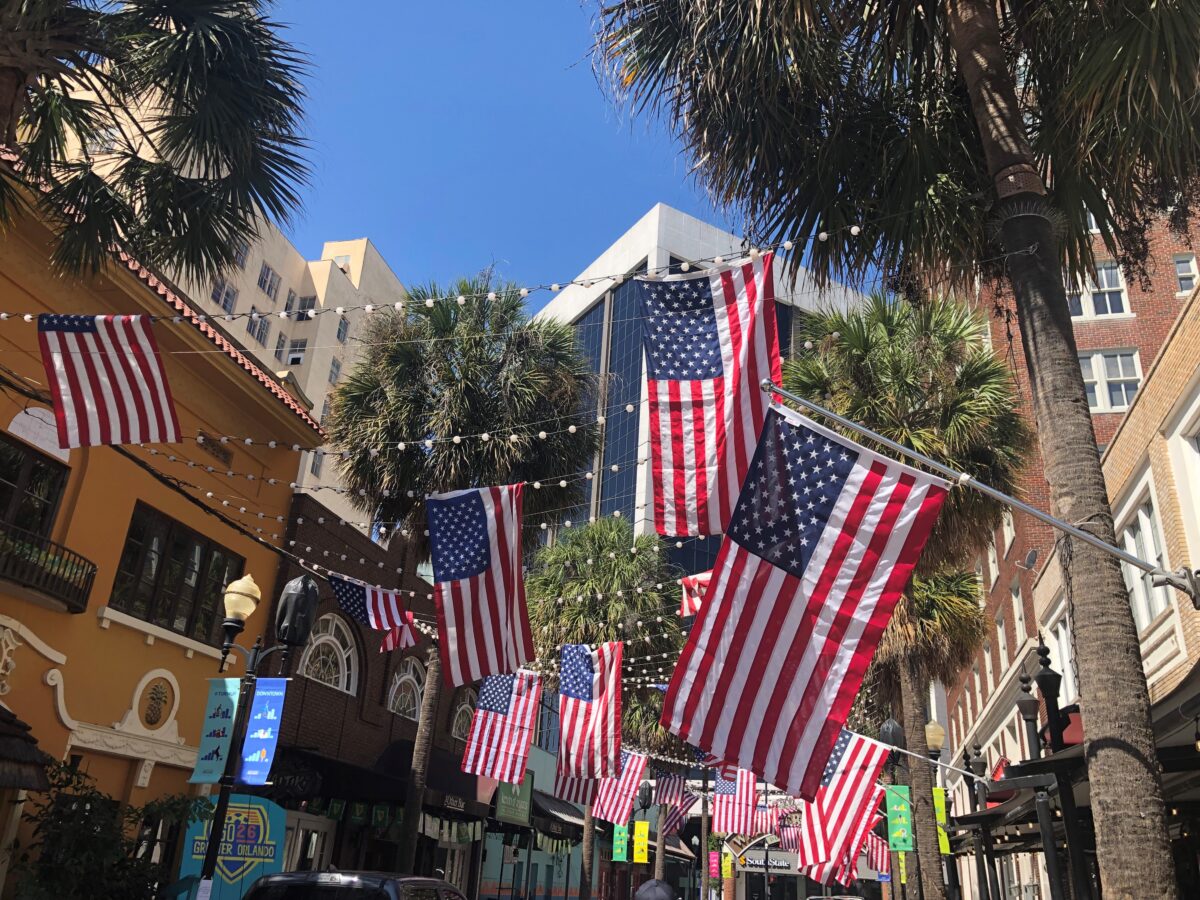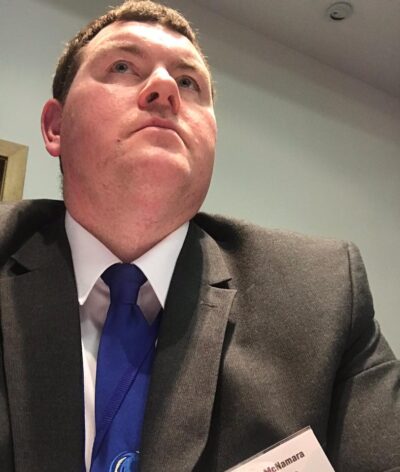We discuss the results of the US Mid-Terms and the potential implications for the 2024 Presidential campaign.
Month: November 2022
No Passport Required – Wednesday 21st December #ThirdWednesday
Come and meet-up with likeminded freedom lovers, at our No Passport Required drinks at The George, Croydon on Wednesday 21st December, from 7pm.
We will hold these in association with Dick Delingpole’s #ThirdWednesday Libertarian drinks club.
Join us at The George. 17–21 George Street, Croydon. CR0 1LA on Wednesday 21st December, from 7pm.
Facebook: https://fb.me/e/3UYdONeeq
I told you so
By Mike Swadling
Originally published in Blacklist Press in March, Mike writes about the counterproductive nature of cancel culture.
” Francis Fukuyama famously suggested we were witnessing The End of History. If that were ever in any way true, The End of History ended when Russian tanks rolled into the Ukraine”
An appearance on the LibertariDan Live show this week got me thinking whether it’s the inefficiency of lockdown, the pointlessness of masks, money printing leading to inflation, windmills making us less energy secure or government overspending making us all poorer, right now libertarians have a lot of reasons to say ‘I told you so’.
Now normally the level of smugness associated with saying ‘I told you so’ is reserved for Remoaners who misunderstand the reasons people wanted to leave the EU, and is best avoided. But right now, in one particular area, I really feel we need to point it out.
At the fall of the Berlin Wall, Francis Fukuyama famously suggested we were witnessing The End of History. If that were ever in any way true, The End of History ended when Russian tanks rolled into the Ukraine. Kiev arguably the father of Russia, first became part of the Russia Empire in 1667, a bookend to a 400 year fight to unite the Rus following their forced separation at the hands of the Mongol horde. Those 400 years had changed Ukraine and created a closely related but separate nation.
“Democracies tend not to (if ever) go to war with each other. Disputes about sovereignty no matter how fraught the circumstances are resolved peacefully. Norway split from Sweden, the Czech Republic and Slovakia split, the U.K. left the EU all peacefully”
Putin’s invasion of Russia was the act of a dictator. Democracies tend not to (if ever) go to war with each other. Disputes about sovereignty no matter how fraught the circumstances are resolved peacefully. Norway split from Sweden, the Czech Republic and Slovakia split, the U.K. left the EU all peacefully. Whilst the separation of what is now the Republic of Ireland from the U.K. can hardly be called peaceful, it was relatively so, compared to say the breakup of Yugoslavia or the wars fought since the breakup of the Soviet Union.
Being a liberal democracy is a good thing. Being a dictatorship of whatever political bent is a bad thing. Living in a dictatorship is likely to limit your life choices, you economic prosperity and your life expectancy. For all its ills we should be proud of the system of Government we have, and we should be able to shout about how much better it is to the system of government in say Russia.
Except of course those of you who have made it this far it the article are thinking… but we’ve not in almost anyway been a liberal democracy for the past 2 years. Yes, I agree, and this is why we have to say ‘I told you so’.
With the banning of RT (formally Russia Today) across much of the west, the cancelling of Tchaikovsky in Cardiff and the banning sports stars, the west can’t hold itself as a paragon of virtue against the dictatorship in Russia. We are playing into the hands of Putin’s propagandists. Those of us who believe in liberty should be shouting from the rooftop, ‘I told you so’. I told you when you cancel those you disagree with, you provide no defence against Russian propaganda. When you cancel RT, you give them an excuse to cancel the (however imperfect) western media. When you don’t provide a platform for even the most unappealing voice in your society, you give the dictators an excuse to dismiss you. When you lock up your citizens for peaceful protest, they can unashamedly lock up theirs. When you are not even aspiring to be a shining city on a hill, you arguably give dictators the moral cover to invade their neighbours.
Would cancelling cancel culture have stopped Putin invading the Ukraine, probably not, but would it have been harder to invade had the west upheld its principles and its economies these past 2 years? Yes!
“Rather than cancelling RT why not pillory it in the same we did Ali Hassan Abd al-Majid al-Tikriti aka Chemical Ali”
Rather than cancelling RT why not pillory it in the same we did Ali Hassan Abd al-Majid al-Tikriti aka Chemical Ali (who ultimately received a death sentence for genocide and was hung). The BNP fell when their leader appeared on Question Time and people could see them for what they are. As a child it felt like every other comedy programme was someone mocking the Nazis, good. Today merely mentioning them, even to criticise, is by some be considered beyond the pale.
With the quick feedback loops of a war, ‘I told you so’, becomes a powerful argument as the protagonists supressed intellectual freedoms in the same way as the woke mob here. History didn’t end with the fall of the Berlin Wall, the world isn’t full of just good people, many are bad, and only with a united stand for freedom will our side, the good guys, win.
Incidentally, if you don’t already watch, look out for more from Dan at https://www.facebook.com/LibertariDanSpeaks
Unabashed patriotism
By Mike Swadling
Back in March I spent a week in Florida, a trip to see among other things, the USA Men’s Soccer team play Panama (they won 5-1). Why would I (a Brit) do that, you might ask. Well apart from the sunshine, the lack of lockdown with commitment to freedom in Florida, and the opportunity to find myself drinking cocktails on Daytona beach, a mate had a spare ticket.
As anyone who has ever visited the United States will understand, the impression I came away with was one of unabashedly patriotism. Which leads to two thoughts, why aren’t we left with that impression from Hollywood and our media, and how do we get some of that in the UK or even just England?
‘Soccer’ as our cousins in the US insist on calling our noble game has been growing rapidly in the US in recent years. Their topflight football ‘Major League Soccer’ (MLS) has expanded from 20 teams to 29 teams since 2016. After failing to qualify for the 2018 World Cup in Russia the national side has now qualified for Qatar 2022, with a team of an average age of 24 who should be at their peak for the 2026 World Cup jointly hosted by the USA, Mexico and Canada.
“Soccer support in the US runs somewhat as a counterculture, for people who fall outside the mainstream.”
Football is best played in a stadium where supporters are close to the pitch, fans are singing, and they have roofs over much of the stands to keep the noise in. The Exploria stadium in Orlando ticked the boxes for the physical requirements, and the US fans sure brought the noise. Soccer support in the US runs somewhat as a counterculture, for people who fall outside the mainstream. It has a base both in the universities of the well-travelled middle class, and in recent immigrants who bring their soccer traditions to the US.
Match day means a few drinks to warm up for the game. Fan zones nearer the ground and general enterprising zones of pubs further away. The Stars and Stripes were ubiquitous but then they often are in the US. The crowd on route was a mix of accents, races, regions, all routing for one thing, the USA.
“These Americans no matter where they were born were proud to be American; ‘why aren’t we left with that impression from Hollywood and our media’?”
It’s fair to say many people on route did wonder who these people were in sports kits. Soccer for all its progress is still a minority sport in the US. But once people knew that the USA, their team, their nation, was playing at frankly anything, they could not have been happier to see us, even to see the English bloke tagging along.
Back to my two questions. These Americans no matter where they were born were proud to be American, ‘why aren’t we left with that impression from Hollywood and our media’?
“To quote C J Cregg from the TV show The West Wing, “Being considered an ‘average American’ is something Americans find to be positive and comforting”
The media, political, ‘expert’ class who frankly blight our lives too much don’t get it. To quote C J Cregg from the TV show The West Wing, “Being considered an ‘average American’ is something Americans find to be positive and comforting”. I think this is equally true if most Brits, all too often we’re just not meant to show it.
Maybe it’s that bad news sells, but surely somewhere we should see that Americans love America, they couldn’t be happier to celebrate their nation, which in many cases is their new nation. It’s common among US soccer fans to have their state name and the number it joined the union embraced in the back of their replica shirts. This leads to little more than some gentle ribbing and largely becomes a great conversation starter. You would struggle to imagine that in the UK.
Which makes me wonder ‘how do we get some of that in the UK. or even just England?’ There have been various initiatives to get the Union Jack n government buildings. Although it often feels they are swapped out as quickly as possible. It’s never been the case that local councils, government agencies, schools and other state institutions routinely fly the flag or flags.
“For societies to function we don’t need high taxes or welfare systems, but humans do need to feel part of a community at multiple levels.”
The 1st century BC, Hillel the Elder said “If I am not for myself, who will be for me? If I am only for myself, what am I? And if not now, when?”. The elites might not be, but Main Street USA is certainly for the USA. For societies to function we don’t need high taxes or welfare systems, but humans do need to feel part of a community at multiple levels. For us to respect each other’s rights to say things we disagree with, the ‘man on the Clapham Omnibus’ needs to feel the other person is stuck on the same bus with them.
Here in the UK, we could stand up that bit more for the country, for our nation within the UK and for the country as a whole. For all the problems with our history we should remember all the good our nation has done, we should remember we are part of a 54-nation commonwealth. We are a democracy and broadly, although under constant attack, we have free speech. We should also remember we have no hope of living in a harmonious society, if we refuse to believe in the nation, we live in.
It was great to see unabashed patriotism in the US. A belief in their state, their team, their country. I don’t for one moment think waving a flag, or all the flags of the UK will bring everyone together and solve all of society’s ills, but in a world where more people are from more places, we need to find ways to build communities. Unashamedly getting behind our flag, and our nation, isn’t a bad place to start.
This article was originally published in Blacklist Press.
Podcast Episode 76 – Rishi Reigns, Selsdon By-Election & Thoughts on the Mini-Budget
We discuss Rishi Sunak’s cabinet and the direction of his Government. We also reflect upon the result of the recent By-Election in Selsdon Vale & Forestdale. Mike then chats with Hoong-Wai Cheah about Liz Truss’ ill-fated mini-budget and the implications for economic liberalism.
Stephen McNamara, political activist.
Stephen McNamara is a Scottish political activist, who has run for office as an independent and for the Scottish Libertarians. He has been involved in a new party called Choice, employed as the Director of Member Services to assist in the initial set up, and to ensure their administrative systems serve their local leaders and members in the way intended.
We interviewed Stephen about his political views, experience, and the new party.
Stephen thanks for your time.
“They had passed laws that gave absolute power to unaccountable statists who could do anything they wanted. They were ultimately responsible for what happened. They were my enemy.”
How did you first get involved in politics, and how would you describe your political leanings?
It’s hard to put a finger on a specific moment in time for when I initially got involved in politics. I think it’s been a combination of individual situations over the years that have dragged me into politics through necessity rather than choice.
Having had that literal knock on the door from government employees back in 2007 and the “we’re here to help you” speech from them, my family went from being relatively comfortable, even if far from perfect, to living an absolute nightmare, some things of which I still suffer PTSD from. With their generous offer of help I ultimately ended up without a family or home with nothing but the clothes on my back, suicidal from the stress, begging for death to take me.
On my way to jump from a bridge into a river, I was found by an independent charity. As I was walking past their little red bus one woman came out and asked if I was hungry. Scared and paranoid of what her intentions were, I reluctantly agreed to accept a sandwich and a hot chocolate drink in a brief interaction that ultimately saved my life. Weeks and months passed where their weekly hot chocolate and non-invasive independent support helped me gain a new outlook.
I became active in the Yes campaign for Scottish independence, in a misguided assumption that independence would make things better. Oh how wrong was I. I discovered that the SNP government I was wholeheartedly supporting to obtain independence was the very same government that had passed the laws that had put me where I was. They had passed laws that gave absolute power to unaccountable statists who could do anything they wanted. They were ultimately responsible for what happened. They were my enemy.
That’s when I started to look at what choices I could make to get my revenge and make sure that my children and many other families would not suffer in the same way I did.
Those politicians feed on votes so I knew I had to start taking votes away from those in power to stop them from continuing to destroy our lives. That’s why I got involved and started to take a stand in elections against them.
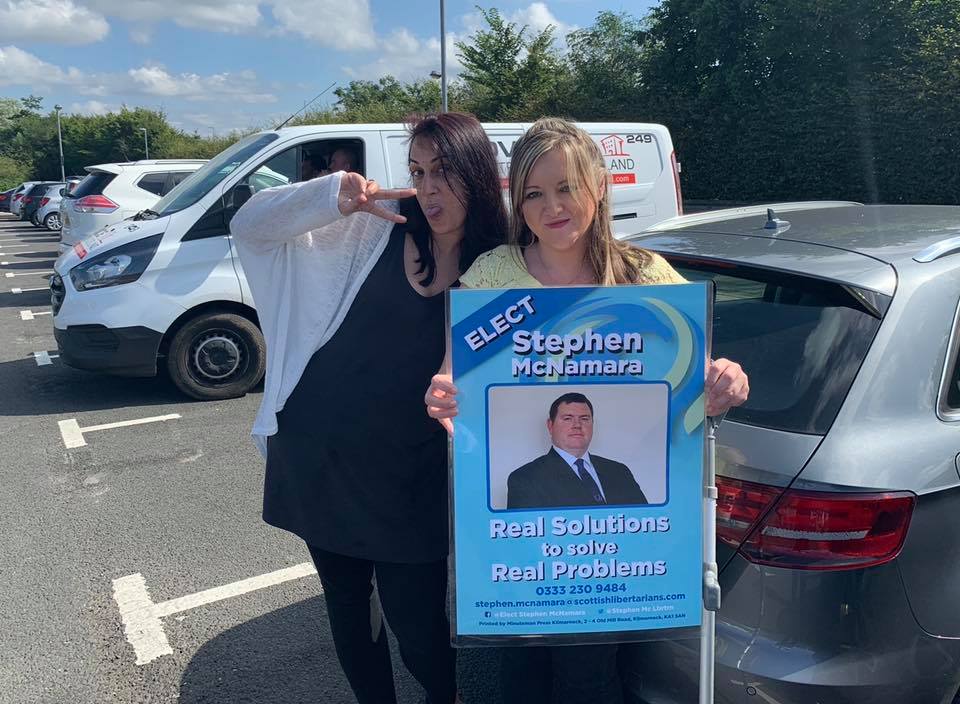
“Even if not in person, a physical letter or even a leaflet makes the difference between seeing some random post on social media versus seeing a physical item in your mailbox.”
Having run for office and being very active on social media, what do you think works / hasn’t worked in getting your political messages across?
Getting a message across to voters is really difficult. Social media, I’ve found, is one of the worst ways to get known outside of your own connections, but getting onto ballot papers and meeting people, physically, out there in the real world, counts for everything.
There is a strong psychological connection human beings have with each other when face to face in the real world. It’s a game changer when you can get out there. Even if not in person, a physical letter or even a leaflet makes the difference between seeing some random post on social media versus seeing a physical item in your mailbox.
If potential voters or party members have that human or physical interaction with you then it is far more effective than anything you can do online.

How would you judge the current political situation in Scotland?
The current political situation in Scotland is full of delusions and wishful thinking, from ALL colours of rosettes.
We have a yellow mouldy watermelon coalition government who have apparently forgotten who voted for them and why, with a Red / Blue opposition in name only and who have apparently forgotten how to vote against their counterparts in Holyrood. The country, it seems, is in a type of perpetual stalemate in an ever downward socialist spiral. It looks like only rock bottom could stop this trend… Or is it?
There are two parties currently in Scotland’s political periphery, one being the Family Party and the other Alba. Alba is the stronger party every which way you look. They have financial support, a strong and active membership, and very experienced candidates all coming out and singing from the same hymn sheet. Their downfall? They won’t step up and stand against the incumbents in constituency seats. There is an old saying about sometimes taking a step back in order to go forward, and that’s where Alba need to grow a pair and stand in the constituencies. By taking votes away from the incumbent government MSPs, they risk a Tory run government in Scotland. To your libertarian readers, we know that replacing one socialist party with another won’t make a difference, but in the collective psychology of Scottish voters, the political landscape monopoly will have been broken and people will start to take a genuine interest in what our politicians really are doing when the press are distracting us with the latest headline attention grabber… Alba first needs to take down the SNP before it can run for government.
The Family party on the other hand, appear well organised and financially stable too. Their online content is of decent quality and they reach out through physical campaigns on issues very much in the minds of middle class voters, tugging at the heart strings of every concerned parent too. Their policies easily translate between left and right leaning voters to disrupt election counts on both sides.
I would predict that they could easily become a mainstream party in the 2026 Holyrood elections simply by standing a candidate in every constituency and region. The Local elections last year clearly demonstrated that they have the candidate numbers to do so, but will they have the strategical willpower to make it happen? Time will tell.
You are involved in a new political party Choice. What are the core beliefs and main policies of the party?
Back in 2016, myself and my wife Stef, met a handful of libertarians in a pub in Aberdeen. We struck a good friendship with some and helped this micro party become the 6th largest party in Scotland at one point and recruited members and candidates through our campaigning and fundraising efforts. Sadly my time with them ended very abruptly leaving me politically homeless. Their decision to ban me from the party, despite the delusions of those running it, immediately saw the party go from their best ever election performance in 2021, to their worst in 2022! I did warn them, repeatedly, not to go down the path they chose, but choose that path they did. Not only did they post their worst ever election result in the party’s history, but they lost their three largest financial donors and a significant chunk of members and activists in the following weeks.
When asked about what I would do differently in running a party, my response was published in Free Speech, a newsletter published by Blacklist Press. In it I wrote a fairly detailed outline of how a party could operate in a positively libertarian way and have the entire power structure decentralised.
This article was picked up on by a small group of libertarian activists who bent over backwards trying to convince me to help them start up such a party. Eventually I agreed, reluctantly at first, but as the group mobilised and started tossing cash into the ring to fund it, we got to work building the vision I had quietly shared one Monday afternoon.
Choice Party UK was born.
Today the registration details are now in the hands of the EC where we await their registration decision.
Gordon Stirling, Keyrin Von-Döring, and Christopher Wilkinson are at the helm of this beautiful ship about to set sail headfirst into the storm that is politics! I’ll be working diligently behind the scenes serving this crew as they recruit and train members, activists, future candidates and the local leaders. In just a matter of weeks this new party will be fighting for individual rights and devolved powers.
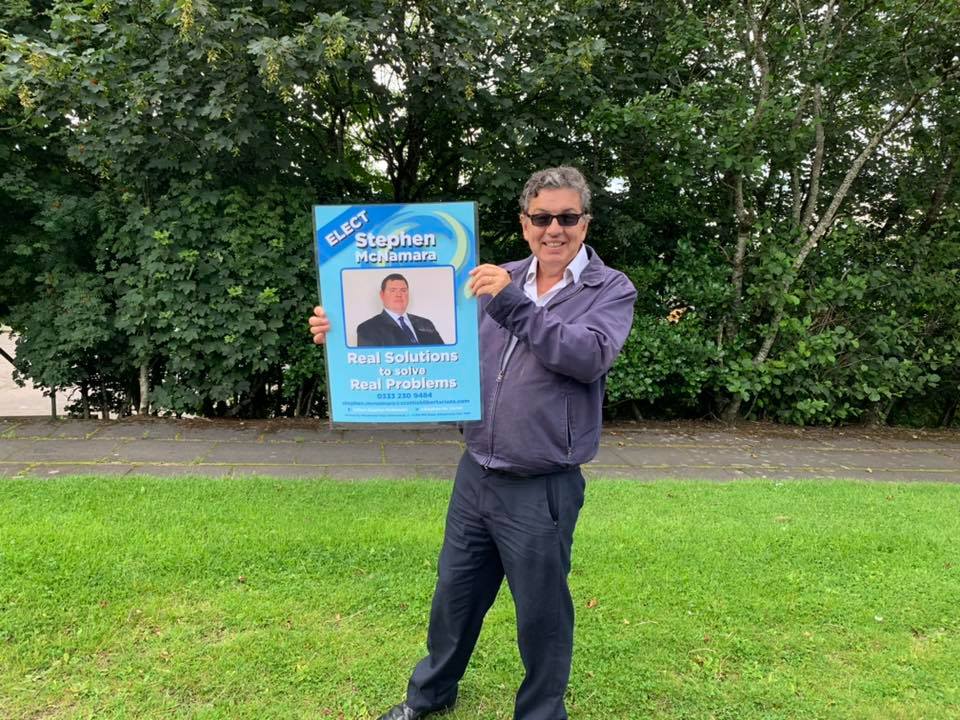
“the biggest difference Choice candidates have over other party candidates is that, if elected, they have an automatic free vote as standard! No three-line whips!”
How will Choice differ from other political parties of a similar vein?
Choice differs from other parties in that where they elect a single leader to be the face and brains of a party, Choice has a completely devolved leadership structure. Gordon Stirling, the registered party leader, occupies a legally required position but which is ornamental in every other way. Gordon is also the Leader of the East Ayrshire area of the party, where his position holds some decision-making powers within his local area only. The local leaders can overrule decisions taken by other leaders in other areas so that the members of those areas have full control of what they want for their area and who they want to represent their views within that area.
Another key difference is that members who join cannot be banned from the party. Every other party has a disciplinary process that ultimately includes banning a person from being a member. The way it is with Choice is that our members have rights, and it is not easily possible for any large clique to form and force out members they just don’t like. There are consequences to bad decisions that members take, such not being permitted to stand as a candidate for the party for a defined period of time, a maximum of 5 years, and such a decision can only be taken by a randomly selected subcommittee of 12 elected committee members where the member has the right to make representation. The committee itself is elected in the same way the local leaders are elected, so only members of each local council can elect one committee member. With 420 local councils in the UK, picking a random clique of 12 that dislikes the individual member is almost impossible, thus making sure the member gets a fair hearing. But enough of the technical stuff, the biggest difference Choice candidates have over other party candidates is that, if elected, they have an automatic free vote as standard! No three-line whips! If an elected member of Choice agrees or disagrees with a motion in Parliament or councils, they have the right to vote in whichever way they feel is best for their local area, not what a party leader demands! Local candidates in local areas working for local constituencies is at the heart of all decisions taken.
How can people get involved with the party?
An administration team, completely separated from the leadership and the committee, ensures that members are served regardless of what else is going on. Choice party members take priority over everything else and individuals can join by visiting choiceparty.org.


